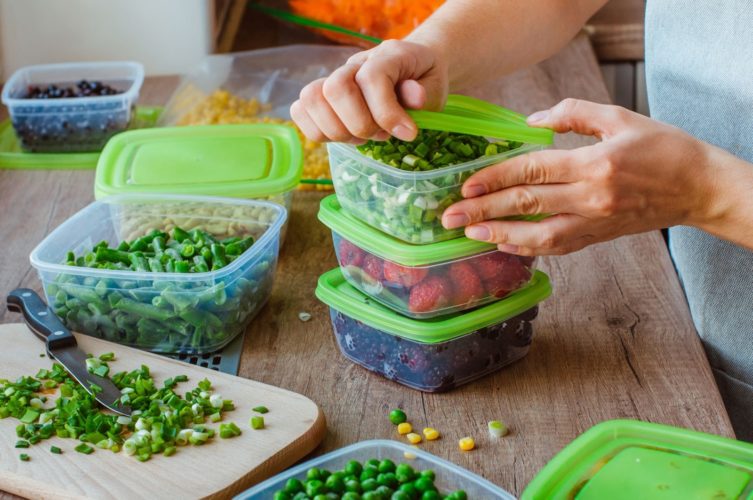
Struggling with depression seems to bring up lots of questions and few answers. Although there isn’t a single reason for, or solution, to depression. We can use research and experience to help learn ways to manage depression and mitigate symptoms with all different forms of treatment.
Talk therapy and medication are perhaps the two treatment modalities most commonly known to help individuals address depression. However, as clinicians increasingly emphasize a holistic approach to depression treatment, getting the proper amounts of sleep and exercise are beneficial too. All while adhering to a healthy diet continuously proves to be an effective way of decreasing depression symptoms and improving overall mental and physical well-being.
In this article we will focus on the relationship between depression and diet — how food impacts the body and mind both positively and negatively, what a healthy diet actually looks like and how you can begin substituting nutritious alternatives into your meal plans.
Why your diet matters
A meta-analysis published in Psychiatry Research showed a crucial connection between diet and rates of depression. This meta-analysis reviewed 21 studies and all of them found a strong relationship between a healthy diet of fruits, vegetables, whole grains and low intake of animal products to be associated with decreased depression.
The reverse, an unhealthy diet of processed and fatty foods connecting to increased depression, was also a prevalent finding in all of the studies.
Ultimately, what you put into your body affects what you get out of your body. Think of it this way — if you pour maple syrup into your car’s gas tank, it won’t run and you’ll have a broken vehicle. The same applies to your body; if you fill it with processed sugars, refined wheat and oils from deep fried foods, you’re going to slowly wreck the microbiome of your gut. Your body won’t run very efficiently if this is all it has to work with.
For this reason, your diet directly affects your mental health, including whether or not you experience symptoms of depression.
The basics of a balanced diet
The studies mentioned above give us great insight into depression ingredients and what changes we might need to make. In all of the studies, the same foods appeared to increase depression, including junk foods, processed foods and foods high in fat. Although the occasional celebratory ice cream or order of french fries is fine, it is important to remember that these foods need to be consumed in moderation.
A balanced diet requires some time and energy to adjust to. There are lots of things to learn about and remember, like which vegetables are best for increasing mental health, what meats are better than the rest and which foods include antioxidants, probiotics or protein. Consider asking a knowledgeable friend or family member help you get started, or meet with a registered dietician for some professional insight.
The best diet for depression
Changing your diet could be difficult and overwhelming if you quit your old habits cold turkey and start working with kale and quinoa right off the bat. Additionally, a diet trend found online (instead of a meal plan crafted on your own), might fail to meet your personal needs, likes or dislikes.
Making incremental changes to your lifestyle is the best way to manage depression through your diet. Not only do fad diets fail to teach long-term healthy eating patterns; their intensity can, in fact, discourage progress.
In the study previously mentioned, a diet high in red or processed meat, refined grains (like white bread or white rice), sugar, high-fat dairy and butter with a low intake of veggies and fruit is associated with higher rates of depression.
Eliminating or minimizing these foods should take priority when changing your diet. When adjusting your meal plan, consider the following:
- Instead of red or processed meat, substitute fish or chicken for protein sources (beans and nuts are also high in protein);
- Swap refined grains for whole wheat breads, brown rice or quinoa;
- Get your sugar fix from fresh fruits or honey;
- Avoid high-fat dairy and instead opt for low-fat yogurt, cheese and nut or plant-based milk;
- Stop buying butter and instead use coconut oil, olive oil or avocado oil — you’ll never even notice the difference.
Investing in the healthy functioning of your body is one of the best things you can do for yourself. What you put into your body affects everything in your daily life, from your energy level to your mood; all you have to do to give yourself high quality of life is craft a high quality diet.
Increase your mental health
Seeds of Hope treats each client as a whole person and not just a list of symptoms needing fixed. Whether you are seeking additional information on the connection of diet to mental health, desire to speak with a dietician to help get your eating habits back on track or want to talk with a counselor about signs of declining mental health in your or a loved one’s life, Seeds of Hope is here to help.
Reach out to Seeds of Hope today to start working on your overall health by calling 610-644-6464.


